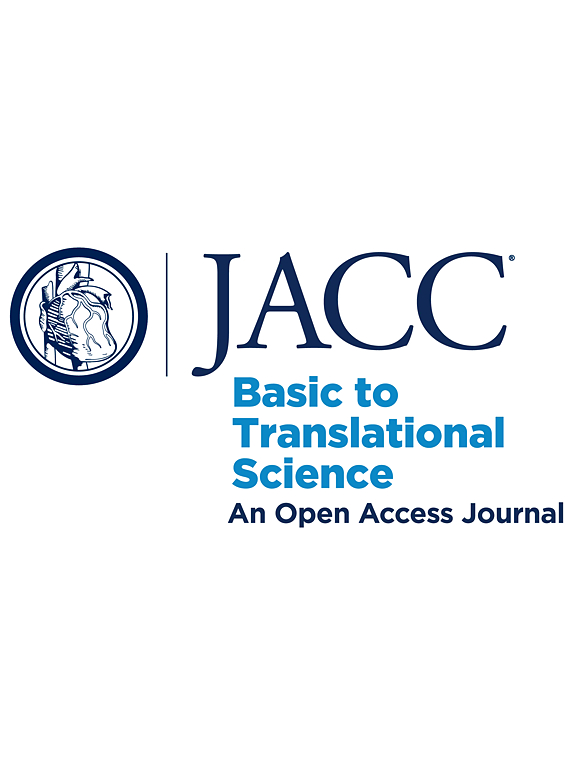Triglycerides and T Cells in Cardiovascular Risk
IF 8.4
1区 医学
Q1 CARDIAC & CARDIOVASCULAR SYSTEMS
引用次数: 0
Abstract
Triglycerides and T cells play a key role in atherosclerosis, the leading cause of cardiovascular disease (CVD). Moderately elevated triglycerides have emerged as a causal risk factor, and T cells are a prominent component of atherosclerotic plaques. This cross-sectional study examined transcriptomic differences in T cells among patients with varying triglyceride levels via RNA sequencing. We analyzed CD4+ and CD8+ T cells from 49 participants, including those with primary (genetic) and secondary moderate hypertriglyceridemia, severe hypertriglyceridemia, and hypotriglyceridemia. Patients with primary moderate hypertriglyceridemia exhibited a proinflammatory transcriptomic profile, including increased interleukin-6 receptor (IL6R) expression, which is implicated in CVD risk. Similar patterns appeared in CD8+ T cells and, to a lesser extent, in secondary moderate hypertriglyceridemia patients. Conversely, transcriptomic differences were reversed in hypotriglyceridemia and absent in severe hypertriglyceridemia patients. These findings suggest that elevated triglycerides may contribute to CVD by promoting a proinflammatory transcriptomic profile in T cells.
甘油三酯和T细胞在心血管风险中的作用
甘油三酯和T细胞在动脉粥样硬化中起关键作用,动脉粥样硬化是心血管疾病(CVD)的主要原因。适度升高的甘油三酯已成为一个因果风险因素,而T细胞是动脉粥样硬化斑块的重要组成部分。这项横断面研究通过RNA测序检测了不同甘油三酯水平患者的T细胞转录组差异。我们分析了49名参与者的CD4+和CD8+ T细胞,包括原发性(遗传性)和继发性中度高甘油三酯血症、重度高甘油三酯血症和低甘油三酯血症。原发性中度高甘油三酯血症患者表现出促炎转录组特征,包括白细胞介素-6受体(IL6R)表达增加,这与CVD风险有关。在CD8+ T细胞中也出现了类似的模式,在继发性中度高甘油三酯血症患者中也出现了类似的模式。相反,转录组学差异在低甘油三酯血症患者中被逆转,在严重高甘油三酯血症患者中不存在。这些发现表明,升高的甘油三酯可能通过促进T细胞的促炎转录组谱来促进CVD。
本文章由计算机程序翻译,如有差异,请以英文原文为准。
求助全文
约1分钟内获得全文
求助全文
来源期刊

JACC: Basic to Translational Science
CARDIAC & CARDIOVASCULAR SYSTEMS-
CiteScore
14.20
自引率
1.00%
发文量
161
审稿时长
16 weeks
期刊介绍:
JACC: Basic to Translational Science is an open access journal that is part of the renowned Journal of the American College of Cardiology (JACC). It focuses on advancing the field of Translational Cardiovascular Medicine and aims to accelerate the translation of new scientific discoveries into therapies that improve outcomes for patients with or at risk for Cardiovascular Disease. The journal covers thematic areas such as pre-clinical research, clinical trials, personalized medicine, novel drugs, devices, and biologics, proteomics, genomics, and metabolomics, as well as early phase clinical trial methodology.
 求助内容:
求助内容: 应助结果提醒方式:
应助结果提醒方式:


